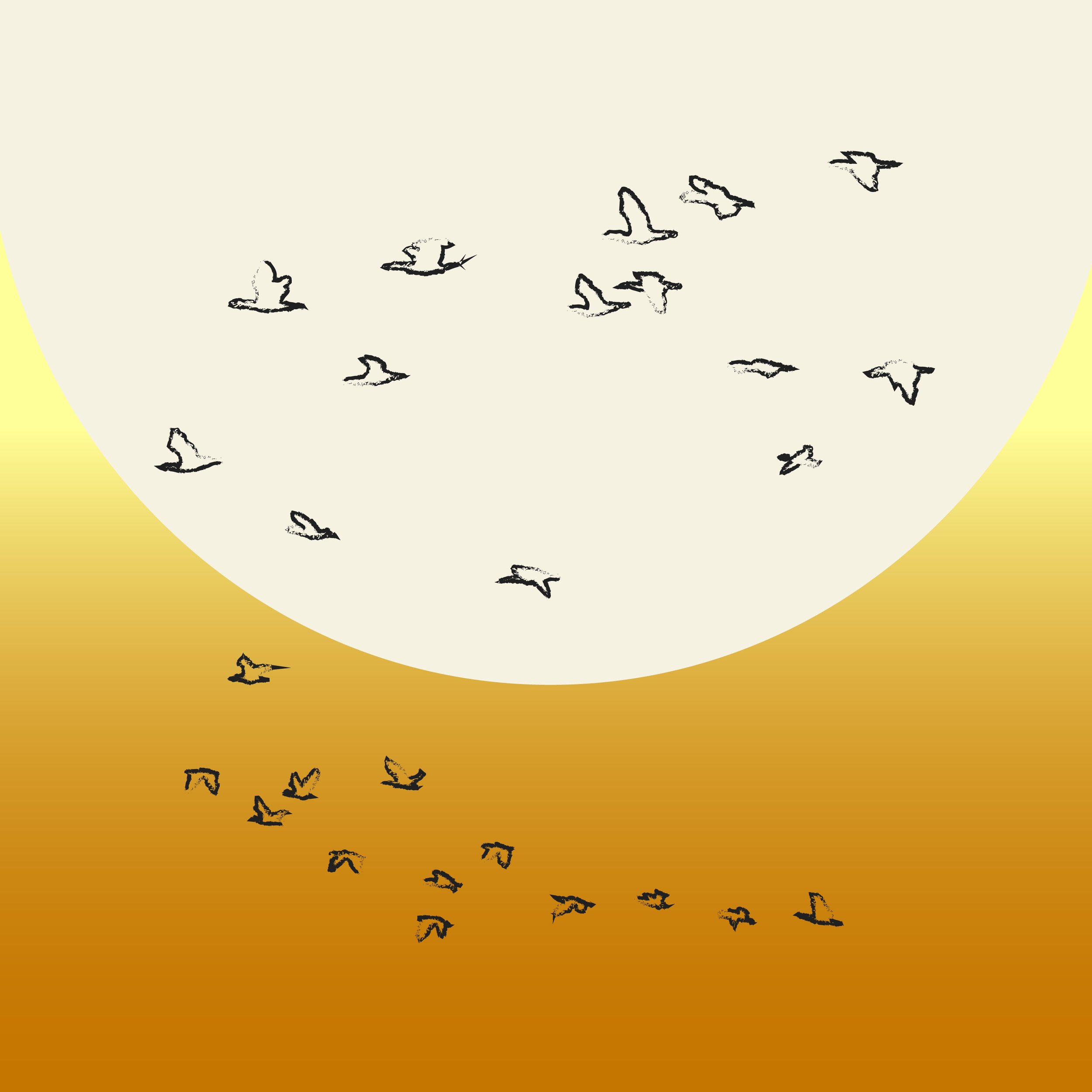“Youth”
An experiment in collective translation.
JANUARY 9, 2024
About the Poem and Translation
Three translators, one poem, zero shared languages outside of English. Our translation of Shakarim Qudaiberdiuly’s 1879 poem represents a daring and perhaps foolhardy act of collaboration. Through it we faced linguistic and literary inadequacies, experimenting with the translation of languages we didn’t share and of poetry (all three of us are translators of prose). Several years ago, Mirgul was reading through the classics of Kazakh poetry when, in a volume of Shakarim’s work, she was struck by one poem in particular. Its sensuality altered her notions of how Kazakh writers of the past approached sex in their work. At the time when Mirgul shared this poem with Ena and Sabrina we were immersed in editing Issue 2 of Turkoslavia Journal, which, to our surprise, was brimming with poetry. Shakarim’s poem seemed to challenge us to take it on despite our greater experience translating prose.
Shakarim was a late 19th–early 20th century Kazakh poet, composer, historian, and translator. Despite having no formal education, he was fluent in Arabic, Farsi, Turkish, and Russian languages, versed in Middle Eastern literature and Islamic theology, and familiar with the works of Western and Russian writers and philosophers. Though he initially welcomed the changes brought by the October Revolution in Russia, he later became disillusioned with Soviet politics and lived a reclusive life in the mountains of Eastern Kazakhstan. After he was shot by NKVD policemen in 1931, his songs, ballads, and historical narratives continued to be transmitted orally or via hand-written copies among the local population.
Steeped in the lyricism of medieval Arabic and Persian poetry and the realism of the canonical Kazakh poet Abai (his uncle and mentor), Shakarim developed an intimate, impassioned poetic style through which he explored the spiritual, philosophical, and social issues of his time. Many of Shakarim’s poems feature the figure of “жар,” the Beloved, which in Sufi poetry — particularly in the works of Hafez, whom Shakarim translated and took influence from — represents God. While Shakarim’s beloved is a mortal woman, as in Hafez’s ghazals, she is more than a mere object of desire; she is the singular source of the poet’s overwhelming emotion, compelling him to action. In his later works, Shakarim explicitly links the image of the Beloved — rendered in our translation as “truelove” — to the idea of Truth. By extension, he sees his life mission as a search for Truth through learning and writing.
Given Turkoslavia’s mission to foreground the challenging work of literary translators, it seems appropriate to describe the successes and difficulties of our process, which lasted about a month from start to finish (or, deadline) and included independent work and joint translation sessions. Our initial plan was to compose three separate translations of the poem, from which we would pick the best lines and phrasings to create a final version. This plan quickly went out the window when Ena and Sabrina, neither of whom know Kazakh, made some preliminary attempts. Ena ultimately found that translating from a language of which she had limited linguistic or cultural knowledge flooded her with experiences she went through as a refugee. Sabrina, who translates from Uzbek and is familiar with other Central Asian languages, expected the task to be difficult but not impossible. Without the dictionaries, grammars, and corpus tools that she has cultivated for Uzbek, however, she found herself at sea in the same boat. Machine translation works only erratically from Kazakh and neither made it past the first two stanzas.
Ironically enough for a poet who died under Stalin and whose work was banned until the USSR’s dissolution, the process we arrived upon somewhat resembles the way Soviet translations were produced. Mirgul, a Kazakh-born exophonic translator, spent a week translating the poem and researching obsolete Kazakh terms and expressions, using sources from scholarly works on Shakarim to encyclopedias on flora and fauna of Kazakhstan. During our joint translation sessions she additionally narrated the meaning of each line to Ena and Sabrina. The three of us then went about creating a lyrical translation that in some way fit the original both in meaning and sound. We considered such issues as verb tense (mindful of the poet’s energetic use of the present progressive), pronouns (shifting from the “I” of the older narrator to the “you” of his younger self), and Shakarim’s driving rhyme (which we mostly avoided). In the Soviet era, translations from the more than 130 languages spoken in the USSR would often be produced with the aid of a “podstrochnik” (trot) composed by a local translator — poorly paid and rarely credited — and then “smoothed out” and made “literary” by a Russian translator with little or no knowledge of the source language. The difference in our case is that no translator or part of the process goes unmentioned.
While the sensuality of Shakarim’s poem drew us in, we became absorbed in its culturally and linguistically specific portrayal of desire and intimacy. From its images of swooping falcons to its final scene of passion inside the truelove’s white yurt, the poem is replete with eroticism informed by nomadic pastoralist culture. The movement of animals, especially birds of prey, which Shakarim was known to train and hunt with, contribute to a sense of continuous motion, mirrored in the use of the present progressive tense. Lines of varying length and position create a fluid yet structured rhythm, some quickening the movement, some slowing it, others halting the flow altogether. While Shakarim punctuates his stanzas with commas and periods, we played with punctuation not only to highlight the rhythm, but as a way to clarify meaning, given English’s lack of inflection.
A slow start with an energetic middle and a dramatic finish—like poem, like process. Hell, we might even do this again.
Youth
Written in Kazakh by Shakarim Qudaiberdiuly in 1879
Translated into English by Sabrina Jaszi, Mirgul Kali, and Ena Selimović in 2023
Diamond eyes,
Nightingale’s song,
A most unrivaled peri.
A moon-like face,
Moods butter-soft,
And this made her different:
Her mind river-wide,
Sole lover of mine.
An houri divine,
I searched for her.
Her unmarred body,
Willowy figure,
Horsehair-thin waist,
Immaculate limbs.
An otherworldly girl
Untouched by ill-wishes!
Eyes striking,
Song flowing,
She combs her silky hair.
Your strength sapped,
Soul wrung out,
At her slightest glance.
When girls allure,
Boys will break.
Running like quicksilver,
A darting fox,
Your heart scatters.
The sword falls,
A swooping eagle
Seizing its prey.
Man has his wants,
His surging desire.
Your face draining pale,
Mind rattling,
Going distances for her.
Tiring out horses,
Shirking duties,
Chasing revelry.
Shameless fool,
Ripping out your soul for her.
White horse, pale grass,
Wearing darkness,
Eluding sight,
Seeking your truelove,
Offering your heart,
With cunning friend beside you,
Journeying to a distant aul.
A peregrine taking flight.
Circling the aul,
Stalking its edges,
Not daring to cross,
Peering from on high,
Heart pumping,
Restless upon the earth.
Tell your friend, Go see,
Bring me her word.
Your friend slips away,
Soundless, unfeeling,
A gray snake slithering.
An eye’s blink
Brings him back
Grinning like a merlin.
I wish your wish be granted, she said.
Be he man, let him approach, she said.
Nothing more to fear.
Clothes becoming light,
Reeling like a spindle,
Treading cautiously,
Watching closely,
A cat near a mouse.
Melting through the door,
Or through a crack, a hole.
Into the white yurt,
Joints giving way,
You draw nearer to truelove.
Groping walls,
Feeling for her bed,
You touch her face,
And your mind fades, soul remains,
She knows.
Hand finding yours,
Arms encircling you,
Your lips graze her white neck.
Body like sap,
Unloosing your tongue.
Mind dimming, all shadow.
Oh, heavens, heavens.
Who could possess their senses?
Gathering yourself,
Smelling her, kissing her,
Spirit still swirling,
But you get your wish,
A morsel of flesh,
Diving like a peregrine,
Dreams made real,
You lie smiling on her chest.
Dawn rushing in,
Growing cold in our bodies,
You wonder, when again?
So, truelove, goodbye,
Wait however long.
Come soon, she pleads, I’ll die.
The dawn’s so short! you say.
Is that your only sorrow?
Dawn betrays you,
Becoming lighter,
No use being idle.
It’s time, you say.
Nothing to be done.
Pull yourself away.
Stay, and dawn drives you out.
Go, and truelove holds tight.
Leaving the white yurt,
Stealing up the hill,
Truelove in step
Walking you away.
The aul at your back,
You cry to her,
Banished by dawn.
No tricks against the light.
Reaching the pass,
Casting one last glance:
She stands there still.
Your friend will wait,
Gripping the reins,
While you run to her,
Kiss her treasured neck,
Brace for a difficult crossing.



